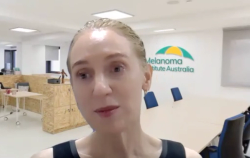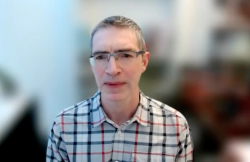Why Melanoma May Need Treatment After Surgery
An expert discusses why patients with melanoma may undergo treatment even after their tumor was surgically removed, and how melanoma became the “poster child” for immunotherapy.
Even after melanoma is completely removed, some patients may still need to go on drugs to prevent their cancer from returning.
In a recent interview with CURE®, Dr. Craig Devoe, associate professor of Medicine at the R.J. Zuckerburg Cancer Center, explained the use of post-surgical treatment, and how melanoma became the “poster child” for immunotherapy.
READ MORE:Post-Surgical Opdivo ‘Just Makes Sense’ for Stage 2B, 2C Melanoma
CURE®: Can you explain why we still need to treat cancer that has been completely surgically removed?
Devoe: There's always a risk with every cancer —breast cancer, lung cancer, colon cancer, and melanoma in this case — that some of the disease cells could migrate down into the local tiny blood vessels or lymph vessels, and then make their way outside of the region of where the surgery was. And in doing so, we can't see them on PET scans or CT scans, but they can then start to grow into a small tumor or in a larger tumor over time, (that is) distant from the original site.
So we give prevention therapy, we call it adjuvant therapy, to mitigate that risk. Various staging systems are used for the different cancers, to indicate what the risk might be. And if you exceed a certain risk threshold, you know, we might recommend employing some adjuvant prevention therapy for you for that situation.
How has immunotherapy affected the adjuvant treatment of melanoma?
Immunotherapy itself was designated a breakthrough of the year in 2013 by Science Magazine, and since then, it's lived up to the name and in that it's been a paradigm shift in how we treat patients. Historically, we've used chemotherapy, surgery and radiation to treat patients with tumors. But immunotherapy gives us a fourth modality or fourth weapon against it.
The interesting thing about it is that it utilizes the the patient's own immune system to attack the tumor, as opposed to, instilling medications that directly kill cancer cells or radiate cancer cells or remove them physically, it's more of a stimulant to the immune system to allow the immune system to attack, kill and put the cancer into remission, and in many cases, cure it as well.
Opdivo (nivolumab) was recently approved for the post-surgical treatment of certain patients with melanoma. Can you explain how this drug works?
We call (Opdivo) a checkpoint inhibitor, a checkpoint is an area in the immune system where the immune system meets the cancer cell. And there are proteins that interact that shut down the immune system from attacking the cancer cell. Those, those immune cells are called T cells or T lymphocytes. Many people are familiar with T cells and immune cells from COVID, and a lot of stuff in the news these days.
The drug actually inhibits the interaction of this kind of lock and key mechanism that shuts down the T cell and allows that T cell to awaken recognize the tumor as a malicious entity, and then go ahead and attack it. And it's really effective in doing that melanoma is in essence, the poster child for this kind of (immunotherapy) treatment and was really developed in melanoma first far ahead of anything else. And primarily because melanoma is has so many mutations in it, genetically that have made it so resistant to chemotherapy. Number one, that chemotherapy doesn't really work. Number two, (there are) historical anecdotes of experiences of patients going into sort of spontaneous remissions and things like that had been documented for years suggesting, a role of the immune system at play. And so, so the immune system was really looked at strongly in melanoma too, you know, as a way to as a way to treat melanoma as opposed to the kind of the standard chemo therapies that that really weren't all that effective.
For more news on cancer updates, research and education, don’t forget to subscribe to CURE®’s newsletters here.
Related Content
 Understanding Adjuvant and Neoadjuvant Melanoma Treatment
Understanding Adjuvant and Neoadjuvant Melanoma TreatmentFebruary 18th 2024
 Experts Give an Overview of the Latest Melanoma Therapies
Experts Give an Overview of the Latest Melanoma TherapiesFebruary 15th 2024
 What’s the Plan for Patients With Melanoma After Surgery?
What’s the Plan for Patients With Melanoma After Surgery?January 10th 2024
 Solid Cancer Approvals from Summer 2023
Solid Cancer Approvals from Summer 2023September 1st 2023
 Types of Skin Cancer and Their Treatments
Types of Skin Cancer and Their TreatmentsAugust 10th 2023
View additional resources on CureToday.com




